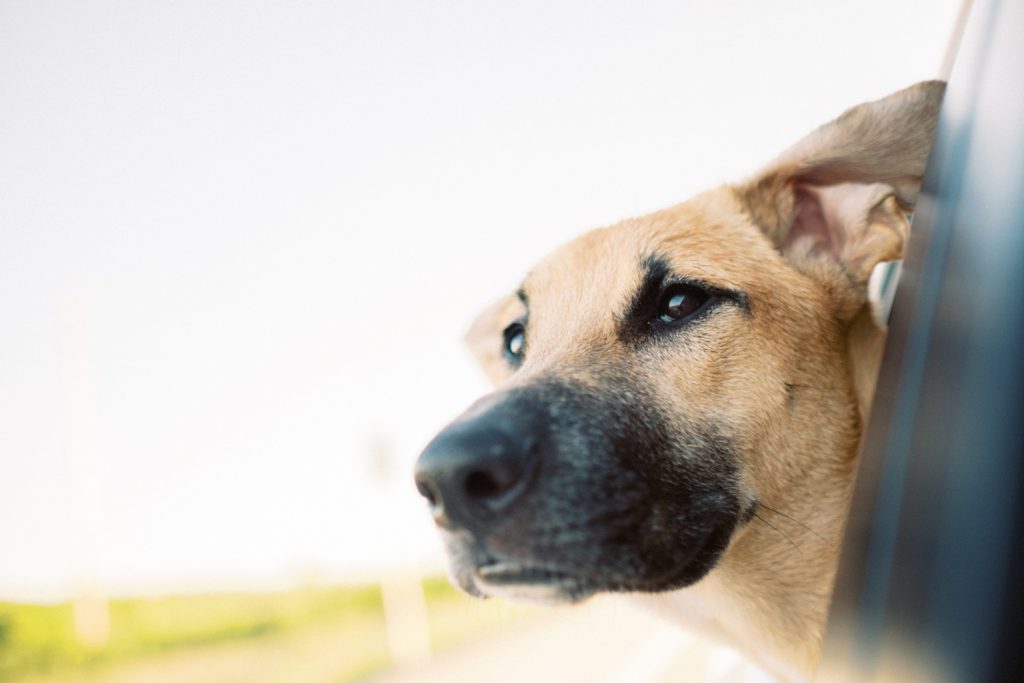What Exactly Is Drooling in the Car?

Ptyalism is the medical term for excessive drooling. Drooling in the car can be caused by several factors, including:
- Motion sickness and car sickness
- Tooth decay or tooth disease
- Heatstroke
- Anxiety and excitement
- Other possible reasons
- Other possible reasons
Why Do Dogs Drool While Driving?
Motion Sickness and Car Sickness
Motion or car sickness is a surprising trigger for drooling in dogs. Your dog will lick his lips excessively, followed by drooling. He might even whine, refuse to move, and vomit. Your dog can lose all control of his bladder or bowels in some situations. Motion sickness is most prevalent in puppies, although it may affect any breed of dog.
Stress may exacerbate this; if your dog correlates car trips with bad encounters (such as going to the clinic for injections or other unpleasant procedures), he can develop a dislike of car rides. This often adds a mental component to your pet’s physical distress when sitting in the vehicle. There is, however, medicine available to relieve the effects of motion sickness.
Tooth Decay or Mouth Disease
Although drooling in most dogs is beneficial in terms of keeping teeth intact, frequent drooling is not. It is a symptom of gingivitis and periodontal disorder. You will find that your gums are inflamed and sore. Teeth may become loose and fall out or crack if not handled. If your dog has a chipped tooth (not caused by periodontal disease), you will notice frequent drooling as a warning sign that something is wrong. Drooling may also be caused by cuts, scratches, or other damage to the mouth or gums.
Heatstroke
Even if you have the air conditioner on, bear in mind that your furbaby wears a coat all year. What seems comfortable or even cold to us might not be enough to keep your dog cool on a very hot summer day. Also, brachycephalic dogs, including such Boston Terriers, Pugs, and Boxers, have a more difficult time adequately panting to cool down their system, but if you see your dog drooling heavily, make sure heat stroke is not the cause.
Anxiety and Excitement
As previously mentioned, car trips to the vet for injections or other painful treatments may induce anxiety in your dog, resulting in unnecessary drooling. Excessive drooling may be caused by intense feelings in your dog. Driving anxiety may contribute to this. On the other hand, the dog might be so excited about a car trip that he drools in reaction. If required, the veterinarian will provide you with gentle remedies or advise you about how to train your dog so that this is no longer an issue.
Some Other Potential Causes
Before you look at those scenarios, make sure your dog hasn’t been subjected to rabies. Rabies induces foaming at the mouth, as well as increased thirst and other behavioral improvements. A foreign substance stuck in your dog’s mouth or throat could even induce extreme salivation. Drooling may be caused by drugs, asthma, or poisoning. Your dog may also have congenital abnormalities (some breeds, such as Bulldogs, are more susceptible to drooling) or defects in the way the mouth is shaped that cause increased saliva output.
What Do You Do If Your Dog Is Drooling in the Car?
To begin, make certain that your dog has not been subjected to rabies. Once you’ve determined this, you need to consult with your veterinarian. He will test the dog and rule out any physical causes of prolonged drooling. Your dog could drool simply because he is nervous about traveling in the car, or he could be suffering from motion sickness. If this is the case, the veterinarian will recommend medication.
Drooling Prevention in the Car
If you think your dog is motion sick, make sure he is looking ahead when running (there are specialty canine seat belts just for this). Reduce the pressure inside and outside the vehicle by lowering the curtains. To avoid heatstroke, keep the car cold.
You can also take short trips (preferably in a separate vehicle) to areas the dog loves, such as the beach. Conditioning like this can prevent the dog from associating car trips with negative encounters.
The Price of Drooling in the Car
Tooth decay treatment in dogs can be costly, with prices varying from $500 to $2000. The national cost for tooth decay treatment is $800. A dog suffering from heatstroke can be treated for many days, resulting in a bill of up to $5000.
Other Considerations and Solutions
Drooling can be aggravating! Understanding the causes of your dog’s slobbering and messing in the car, on the other hand, maybe the difference between a healthy and content dog and a dog in distress. It is great to be able to share the world with your dog, so if this is vital to you, take the time to work on some car travel problems. Time and patience when you desensitize your dog to his car fears can go a long way toward resolving this issue.
Many dogs like traveling in cars, and some also enjoy riding on the back of a truck. Dogs who work in the field or on a farm have more likely been raised like the other canine members to get in and out of a car as a natural and happy way to ride.
